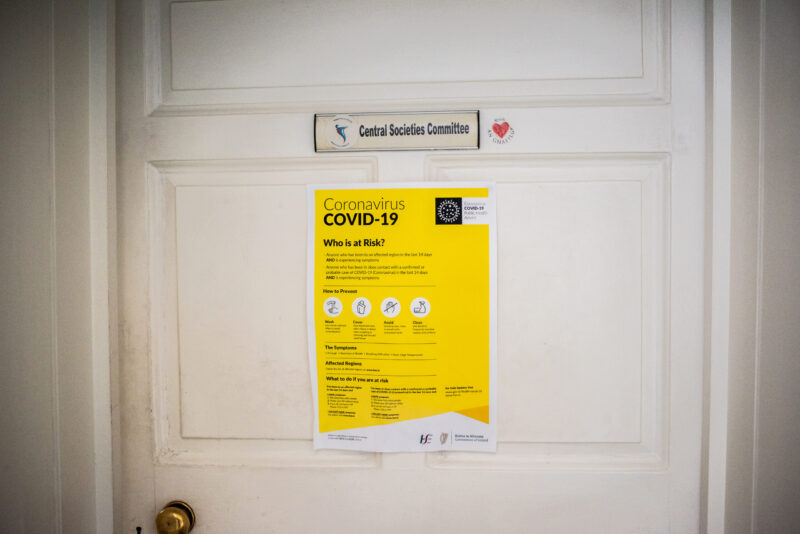Some 76 per cent of societies have told the Central Societies Committee (CSC) that the Trinity Education Project (TEP) has negatively impacted them.
Prior to the onset of coronavirus, the Central Societies Committee (CSC) asked Trinity’s societies a series of questions regarding the impact of TEP – now just the Trinity Education – on society life.
One of the survey’s most notable findings was that over three quarters of respondents said that Trinity Education’s term and assessment structure had a negative effect on their ability to engage at a committee level with their society.
Some participants said they found committee members had less availability due to the transition from “summative forms of assessment” at the end of each year, to “formative assessment” spread throughout the year.
Both examination periods are now preceded by only one week, whereas before, when there was just one examination period, it was preceded by three weeks.
Speaking to The University Times, Chair of the CSC Ryan Grunwell said: “If there is only one week to study for exams, and often those exams are almost indistinguishable from previous years, students just begin studying as intensely as they would during the three-week period, previously afforded to them during summer, in the weeks prior to the one week of dedicated study which is now afforded to students”.
On how general engagement was affected by Trinity Education, 33 per cent of respondents reported a significantly negative effect, 43 per cent of respondents reported a moderate negative effect and 23 per cent of respondents reported no discernible effect. None of the respondents reported a positive effect on general engagement.
Grunwell expressed concern about the sidelining of society life as a result of the Trinity Education.
“It feels as though societies and their particular contribution to the Trinity experience have been overlooked thus far in the implementation of Trinity Education”, said Grunwell, adding: “Many of the societies we have liaised with feel as though the capacity of their society to contribute positively overall to the Trinity experience has been hampered by the implementation of the Trinity Education Project up until now”.
In the second term of last year, many societies reported a drop in engagement, something that is potentially more likely this year due to the online nature of society events.
Recently the CSC held a town hall meeting in which the committee received feedback from societies. It was decided that the CSC would run a second societies week in conjunction with the usual refreshers’ fair in the first week of the second term.
The CSC and societies hope that this will increase engagement without putting a lot of extra pressure on society committees leading up to exam season.
Respondents to the survey also had the opportunity to make suggestions for improvement. Some suggested that Schools stagger deadlines to make the workload more manageable.
Others suggested removing some of the barriers to booking spaces for events, such as the Examination Office’s tendency to book large chunks of time in buildings like the Graduates’ Memorial Building, which is also used by societies.
“This is another direct consequence of TEP and the way it has been implemented”, said Grunwell. “The Examination Office has just been afforded this new power to provisionally block-book ridiculous periods of time, often times weeks, just in case they might need to schedule an exam, which obviously just makes it harder for society committee members.”
The Membership Hub which was introduced in Freshers’ Week this year is also here to stay for the time being.
“Overall, we have been quite pleased with the capacity of the membership hub to help societies bring in and engage with new members”, said Grunwell.
He also emphasised the importance of listening to the needs of societies on these issues: “Everything is very uncertain and if we find that societies don’t want to use [the Hub] anymore then we may try something else instead.”
The CSC reported that, as of freshers’ week, there were 18,413 individual sign-ups and over 8,000 students had purchased multiple memberships through the Membership Hub.
As usual, societies will be required by the CSC constitution to submit a grant application by the end of the first semester, but Grunwell said the CSC acknowledge that, due to the everchanging coronavirus situation, supplemental applications will be accepted at a greater degree than usual if it is the case that societies can run more physical events than they had anticipated.







